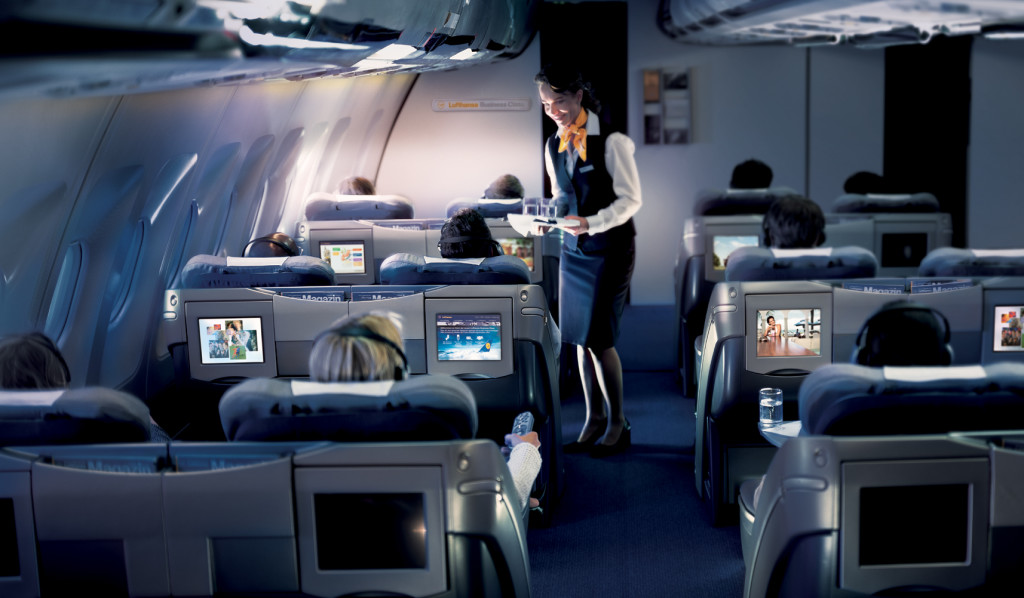Business class flights: What you need to know?

The aviation industry has changed a lot over the last few decades and is now seen as common as many other forms of travel.
Whether for business, personal needs or going on holiday – many of us have had varied experiences of air travel – and with many different options available, many do not know what type of flights can be taken.
Air travel can be put into two groups – domestic and international flights. However, the service available can be different depending on the airline and the price you paid for your ticket.
Modern airplanes are fitted with the latest technology and with vastly improved manufacturing –flights are taking less time and are done so in more comfort.
What is a business class flight?
When you, your family or your company are looking to buy a ticket for a flight, there are up to three options available – economy, business and first-class flights.
Much more is known about economy and first-class flights – but what is a business-class flight?
Business class flights are the intermediary between economy and first class, and are only available for long-haul flights (normally for longer than six hours).
In many modern airline companies, the term ‘fist class’ flight has been eliminated and business class is used for the premium ticket that is available. However, this is not the case for all airlines.
Business class establishes itself over economy by offering higher quality seating, food, drinks, airport services and amenities (both at the airport and whilst on the plane itself).
For short flights, this isn’t as noticeable as often the seats and in-flight amenities and food are the same. It is only the pre-flight amenities that can differ.
If you purchase a business class ticket, there will often be a ‘C’ or ‘J’ followed by a series of numbers to denote to airport personnel that you will be flying business class.
What do you get on a business class flight?
Essentially, you will get the same amenities and services as economy – but with greater quality. However – what exactly does this entail?
For the average flyer, the experience of airport to destination can be an unpleasant one with screaming, unruly children, troublesome toddlers, un-appetising meals and barely enough room to breathe – so is it work the extra money to go to a business class ticket? Will it improve your experience of air travel?
Considering the cost of flying is reasonable (compare a flight to Europe to a train ticket or bus journey from Manchester to London, for example), for a small percentage increase, on principle alone it is a good deal.
If it is a short, domestic flight you will not see a benefit – but if you are going to be on the plane for a considerable amount of time, it is worth considering what extra benefits you get.
For longer and international flights, the returns your get for your added investment can be huge. More room can lead to more sleep and a more comfortable experience.
With business class flights, you will get smaller and separate checking in desks, which can reduce the often stressful encounters you can have at airports. If you are carrying extra baggage – you often don’t have to worry. With more allowance, there is no longer the waiting room shuffle of items between passengers and bags in order to make the correct kg weight for the flight.
In terms of in-flight entertainment, you will have high-quality and branded headphones – rather than the disposable and easily-breakable ones you have in economy. For you meals, the food is fresher and has a wider range of choice. You will also get served before others on the flight. It is also likely that you will receive a complimentary glass of champagne, for those who are partial to a mid-air refreshment.
Often flights are very impersonal experiences – as people, bathrooms and luggage are in in very close proximity to each other for extended periods of time. This differs in business class as often there will be more space in between seats and sometimes there is even a curtain to shut yourself off from other passengers.
All told, the investment is business class flights is worth it – especially for longer haul and international flights.
Economy class is not getting better – and it will always be the low-cost, low-maintenance offering from airlines. The only upgrade you can get within economy class is one for extra legroom.
What other flights are available?
Business class flights offer a modest improvement over what economy has to offer – but what other types of tickets are available to buy for air travel.
What is an economy flight?
Also referred to as coach, steerage, standard or third class – an economy flight is the lowest price and quality of air travel which offers basic amenities, food and choice of in-flight entertainment. A reclining seat, a fold-down table and a seat pocket are standard offerings, although you this can be affected if the person in front chooses to recline. The pocket will contain an in-flight magazine, air sickness bag, duty-free catalogue and the health and safety protocols. Optional extras could possibly include a blanket and headphones. On some airlines – especially for long-haul flights – there may also be an amenities bag. This contains a small pillow, ear plugs, toothpaste and an eye mask. The standard economy class airline seat is between 43cm and 47cm wide and is often fitted with an adjustable armrest (though this may depend on the airlines and if what seat you are assigned to). On long-haul flights, there will be a standard 7-inch screen with a choice of movies, television shows and games. Some airlines have this as part of the price of the ticket and some charge a fee for use of the entertainment systems.
What is a first class flight?
First class air travel is the more luxurious version of air travel and is superior to what is on offer for business, premium economy and economy flights. There will be a smaller, limited number of lights available for this type of airline ticket. Engine airplanes have fist class at the front and propeller airplanes have first class towards the rear of the plane. They will have larger seats, up to 173cm in width and will also be able to recline further – some airlines can have them go completely flat to help you sleep better. Food is fresher and of higher quality – often produced by a high-quality restaurant before the flight. Complimentary champagne and higher quality, gourmet snacks are frequent for longer haul and international flights. In-flight entertainment is better as well. Larger screens with more choice of content are available as well as high-quality headphones, some of which are wireless, making even more room and ease of movement possible. Before the flight takes off, there will be a separate check-in desk and you will be able to get onto the plane first – meaning less queuing and less stress. If you are flying out of an international airport, you will also have the benefit of having a first-class lounge, where complimentary food and drink are available 24/7.
Why should you travel business class rather than first class?
Now you have seen the differences and the benefits first class has over the rest of the available tickets, it is clear that comfort and ease of travel are important to passengers.
But what benefits could you get from flying business rather than first class?
- Some similar amenities to first class but at a fraction of the cost. More room, better food and less queuing beforehand are important factors for travellers – and are available in business as well as first class.
- More availability. Some airlines only have up to eight first class seats available meaning that they can sell out fast. With the benefits of business class clear for all to see, taking this type of ticket – especially for shorter flights – can be financially beneficial.
- Blurring of lines between what is business and what is first class. Some airlines class them as the same minor some very small differences. You will have all the latest tech and amenities – with further first class benefits soon to be available to all.
- Benefits if you are a frequent flyer. Many major airlines class business and first class as the same when it comes to accruing miles for benefits schemes. This means that by spending less you will be getting the same results as someone who has spent considerably more.
- Bottom line. More money saved – it is that simple.
How to get a cheap business class flight?
There are several ways in which to upgrade your normal form of air travel and get a business class flight. Business Leader has the inside track to help you get to the head of the line for your next international excursion.
Top tips for cheap business class flights:
- Upgrade with frequent flyer points
- Sign up to error fare alerts
- Upgrade or buy a ticket late
- Travel at quiet times
- Be loyal to an airline
- Arrive to flight early and be the first to check-in
- Check emails
What airlines use business class flights from UK airports?
Below is the list of all the airlines that use business class flights for their flights out of the UK.
- British Airways
- BMI
- EasyJet
- Flybe
- Ryanair
- TUI
- Virgin
- Qantas
- Aeroflot
- KLM
- Air France
- Lufthansa



